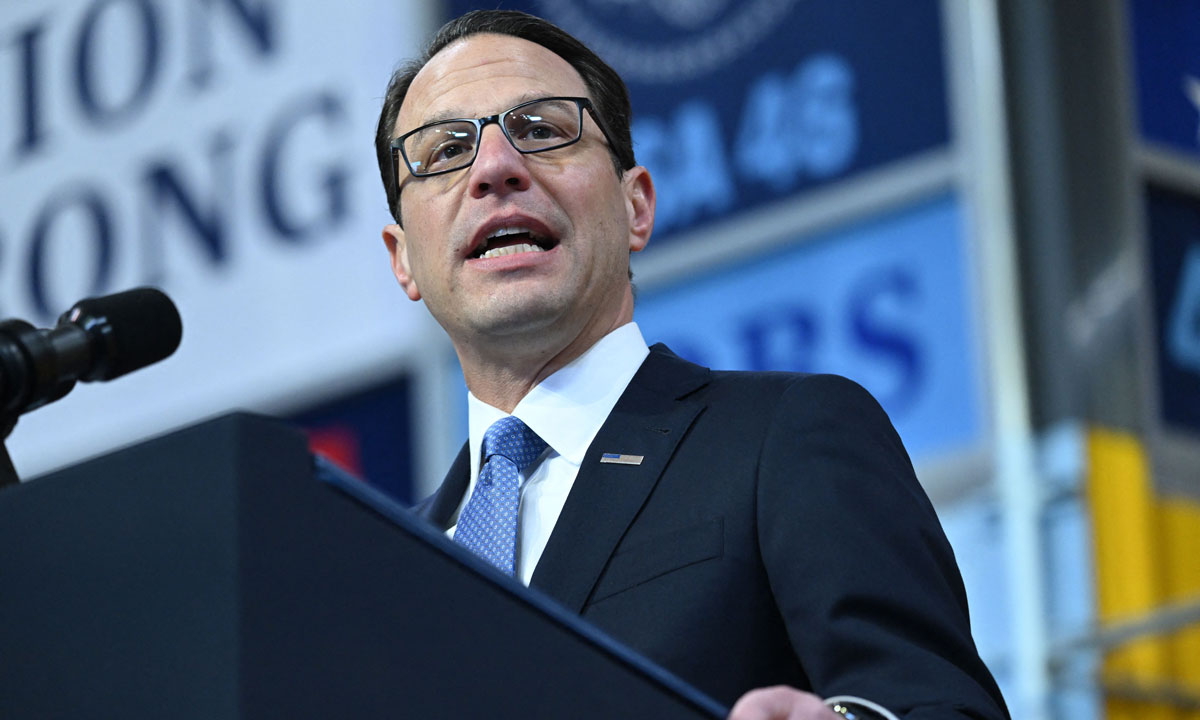Pa. Gov’s School Funding Increase Called Too Thin After Historic Court Win
Plaintiffs’ lawyers say Gov. Josh Shapiro’s proposed budget does not increase school funding enough and actually does less for underfunded districts

Get stories like this delivered straight to your inbox. Sign up for The 74 Newsletter
More music, art, mathematics and English language teachers. Additional social workers, guidance counselors and academic interventionists. Upgrades to dozens of rooftop exhaust fans and HVAC systems.
That’s what Shenandoah Valley School District Superintendent Brian Waite says he needs to properly serve his students. His school system is in one of Pennsylvania’s poorest regions with 80% of Shenandoah Valley’s roughly 1,200 students economically disadvantaged.
Waite was glad Gov. Josh Shapiro acknowledged the longstanding inequity in the state’s education funding formula during his budget address earlier this month. But Shapiro’s proposed $567.37 million increase in basic education funding isn’t enough, Waite said, nor what he and others were hoping for when they successfully sued the state over the formula.
“We are grateful for every dollar of funding we receive,” the superintendent said. “But the final budget must be larger to meet the urgency of this moment. The size of the proposed budget increases are not the down payment we need to provide the quality public education guaranteed in the state constitution — and to begin to plan out a system that gives our kids what they deserve.”
Likewise, the attorneys who fought on behalf of his district and five others across the state — alongside parents and other plaintiffs, including the Pennsylvania NAACP — said the governor’s plan “does not do enough to meet the standard set by our state constitution.”
The comments came a month after Judge Renée Cohn Jubelirer issued a 786-page decision ruling Pennsylvania’s school funding formula unconstitutional after the long-running litigation. She found the stark disparities in student outcomes between high- and low-wealth districts were directly related to the vast difference in resources made available to them.
A spokesman from the governor’s office told The 74 that no one could predict allocations beyond this budget cycle, but that the current proposal “is not the final step” in addressing school funding inequity.
Shapiro is asking for an additional $103.8 million for special education programs and $100 million for school safety and security grants. His proposal also includes $100 million to reduce and remediate environmental hazards in schools and a more than $60 million increase in higher education funding.
Attorneys from the Education Law Center-PA, The Public Interest Law Center and O’Melveny & Myers LLP said in a statement that this year’s increases to the basic education fund are only pegged to keeping school funding on pace with inflation.
Last year’s education budget, the attorneys noted, included a $225 million supplement for the 100 most underfunded school districts. These so-called Level Up monies prioritized those districts for the past two years.
“This proposal also takes a step backward: while last year’s budget provided additional support for the Commonwealth’s most deeply underfunded districts through the Level Up program, this one does not,” the lawyers said in a joint statement.
Waite, the Shenandoah Valley superintendent, said his students have waited long enough. The district’s English learner population has more than tripled in the past 15 years and classroom teachers of other disciplines are stretched thin.
“I have math teachers in the secondary level teaching more than one content area in the same classroom: Honors Trigonometry and Algebra II in one class — with geometry and trigonometry in another,” he said.
Many of the district’s rooftop exhaust fans and HVAC systems date back to 1982. It is also in need of masonry work on retaining walls, sidewalks and outdoor stairways, some of which are disintegrating and have not been upgraded in decades.
Susan Spicka, executive director for Education Voters of Pennsylvania, founded in 2008 to promote a pro public education agenda with the public, said she recognizes the enormity of creating a fair funding formula but wished to see a far bigger number in this latest budget proposal: She lamented that it did not appear to prioritize those school systems most in need.
“For two years, the Legislature and governor, on a bipartisan basis, recognized we need to target money to the neediest districts,” she said. “To see he took a step backward was really strange, and very disappointing. That supplement has really made a very big difference in those school districts.”
Shapiro’s office, which at first insisted that Level Up funding was in the budget, did not respond to later pushback from critics.
The new governor addressed head-on Judge Jubelirer’s “call to action” in his recent budget announcement.
“Her remedy was for us to get around the table and come up with a solution that ensures every child has access to a thorough and efficient education,” he said of the judge’s decision. “While theoretically there’s still time left to file an appeal, all indications are that Judge Jubelirer’s ruling will stand. And that means we are all acknowledging that the court has ordered us to come to the table and come up with a better system, one that passes constitutional muster. I’m ready to meet you there.”
The budget will require approval from a Republican-control Senate and Democrat-led House. The Legislature is required to approve the budget by June 30.
Get stories like these delivered straight to your inbox. Sign up for The 74 Newsletter

;)
